Are you looking to take your boxing sparring skills up a notch? Whether you are a beginner or an experienced fighter, these tips will help you improve your technique and performance. These tips are based on real-world experience and have been proven to work for boxers at all levels.
Don’t Be Afraid to Get Hit

One of the biggest mistakes that new fighters make is being too afraid of getting hit. They try to avoid every punch, and as a result, they don’t learn how to defend themselves properly. If you want to get better at boxing sparring, you need to be willing to take a few hits. It’s the only way to learn how to react when you do get hit appropriately.
Flinching and trying to avoid every punch will only make you more vulnerable in the long run. By making sure that your eyes stay open and taking a few punches, you’ll be able to learn how to defend yourself properly and stay in the fight.
Use Your Footwork

Footwork is one of the most important aspects of boxing sparring. If you are constantly standing in one spot, your opponent will be able to predict your movements and counter you easily.
You also need to keep in mind that moving backward is rarely a good idea. Instead, you should be looking to move laterally or even forward. This will help you stay in range and not get backed into a corner.
Vary Your Attacks

Another common mistake that fighters make is being too predictable with their attacks. If you always throw the same combination of punches, your opponent will be able to defend against them easily. You need to mix things up and keep your opponent guessing. Try different combinations of punches and use feints to set them up.
As I said, using feints is a great tool, which you should practice during sparring. For example, you can fake a jab and follow up with a right hand. This will help you land more punches.
Stay Relaxed
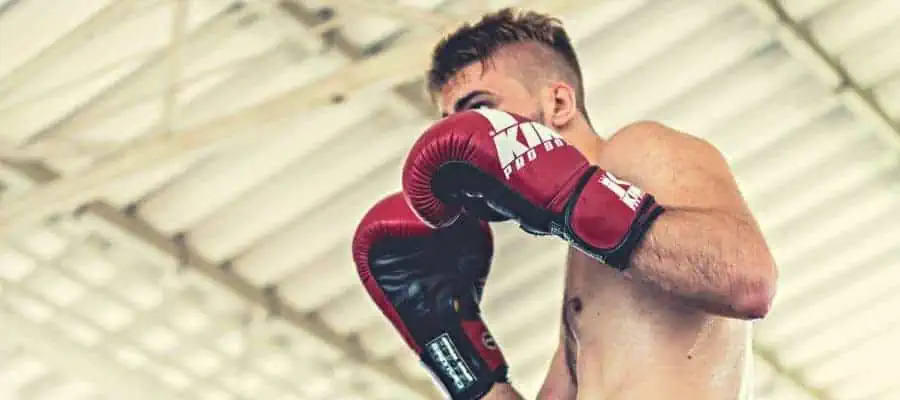
When you are sparring, it’s important to stay relaxed. If you are tense, your muscles will tire quickly, and you won’t be able to throw punches with as much power. Being relaxed will also help you to better react to your opponent’s punches and counter them.
Tensing up will cause your muscles to fatigue quickly, so it’s important to stay relaxed when you are sparring. By using up all of your oxygen with tension, you will get tired more quickly and won’t be able to throw punches with as much power.
Keep Your Hands Up
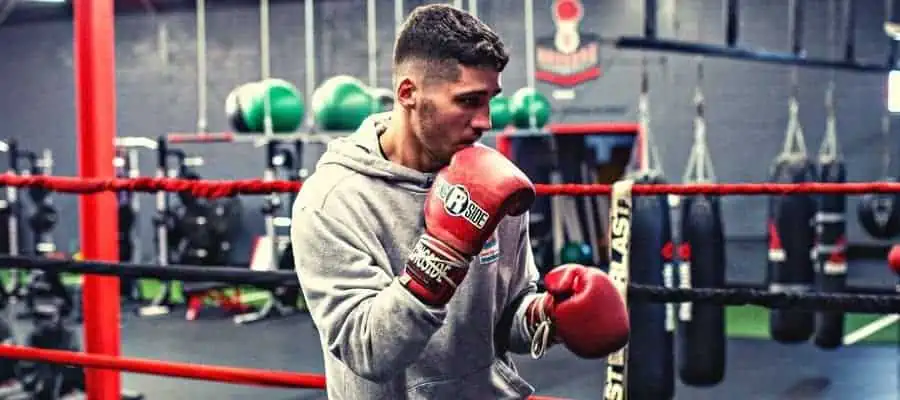
One of the most critical defense tips is to keep your hands up. If you lower them, even for a second, your opponent will take advantage and land a clean shot. Keeping your hands up will also help you throw punches with more power.
You need to ensure that you are always protecting yourself, especially when you are not throwing punches. Keep your hands up, and don’t let your guard down for even a second. You also need to keep your chin down. You can practice this by holding a boxing glove or a tennis ball under your chin while shadowboxing. This will make it natural for you to hold your chin down.
Use Proper Form
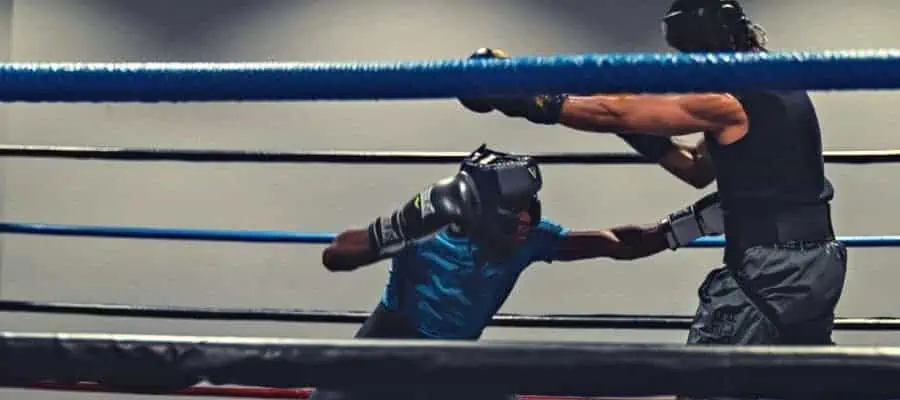
When you are throwing punches, it’s important to use proper form. Otherwise, you won’t be able to generate enough power, and your shots will be less effective. Make sure that you keep your elbows in and punch from the shoulder.
Make sure that you are also using your hips when throwing punches. This will help you generate more power and throw more complex shots. If you want to catch your opponent off guard, you need to ensure that you are not telegraphing your punches. This means you shouldn’t give any clues or telltale signs that a punch is coming.
One way to do this is to keep your gloves close to your face and not wind up before throwing a punch. By staying relaxed and not telegraphing your punches, you’ll be able to catch your opponent off guard more often.
Don’t Get Discouraged

It’s natural to get discouraged when you start out in boxing sparring. You will likely get hit a lot and feel like you are not making any progress. However, it’s essential to persevere and keep going. The more you spar, the better you will become.
You will improve by going through sparring, even those you are getting beat. You will also develop mental toughness, which is an essential quality for any fighter. So don’t get discouraged and keep going.
Watch Videos Of Professional Fights

One of the best ways to learn how to box is to watch videos of professional fights. Pay attention to how they move around the ring and how they throw punches. You can also learn a lot by watching instructional videos on YouTube or other websites.
By mimicking some of the techniques that you see, you will be able to improve your skills. Just make sure that you don’t try to copy someone exactly, as this can lead to bad habits. There are a lot of great YouTubers who have had professional careers in boxing. They often upload videos in which they break down fights and teach viewers how to box. These can be extremely helpful in learning the sweet science.
Find A Good Coach
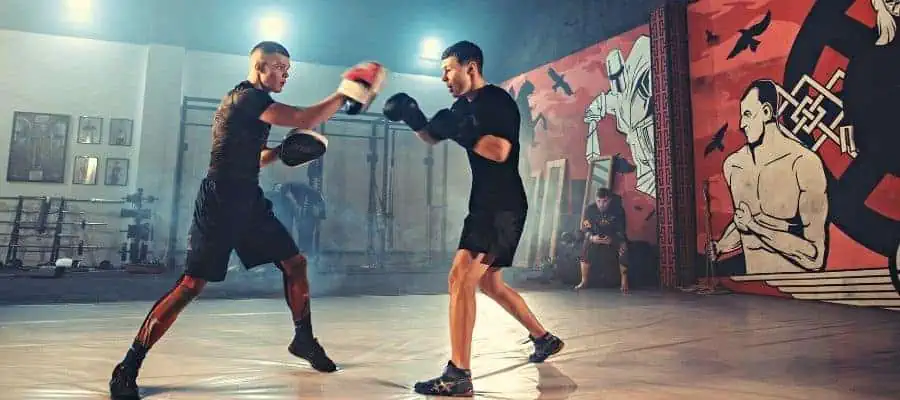
If you want to take your boxing sparring seriously, you need to find a good coach. A good coach will be able to teach you the proper techniques and help you to avoid making common mistakes. They can also give you valuable feedback after each sparring session.
A good coach is someone who watches you carefully and gives you advice based on your specific needs. A good coach also brings the best in you and teaches you how to develop your boxing game to the next level.
Practice At Home

In addition to going to the gym, you should also practice at home. You can do things like shadow boxing or hitting a punching bag. This will help you stay sharp and maintain your skills between training sessions.
Even doe some amateur boxers dislike shadowboxing, this is where you sharpen your technique. You can work on your form and accuracy by throwing punches in the air. You can also practice different combinations and learn how to flow from one punch to the next.
Get In Shape
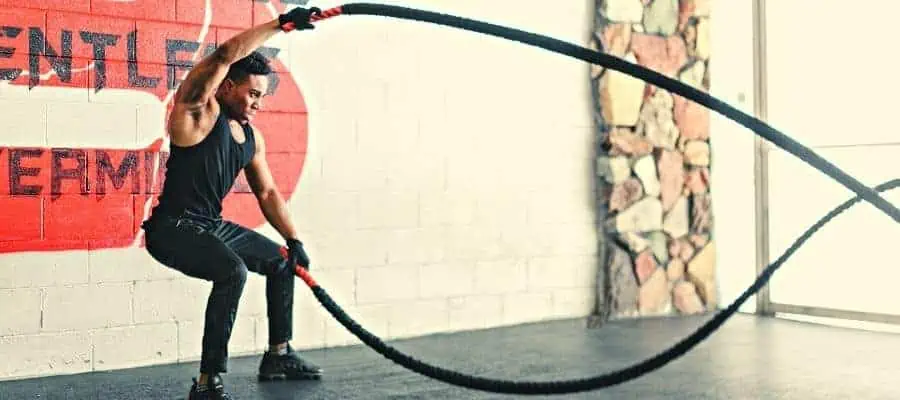
Boxing is a physically demanding sport, so you must be in good shape. This will help you last longer in sparring sessions and recover quickly between rounds. Do some cardio training and lift weights to build up your endurance and strength.
You will also need to develop some muscular strength. This will help you to generate more power behind your punches. Do some exercises that target your arms, shoulders, and back. These muscles will help you to throw harder punches. Your legs and your butt are also crucial for generating power, so make sure to do some squats and lunges.
Eat Healthy Foods

What you eat also plays a role in how well you perform in boxing sparring. Eating healthy foods will give you more energy and help your body recover faster after workouts. Avoid processed foods and eat plenty of fruits, vegetables, and lean protein.
Avoid eating a heavy meal before sparring. This can make you feel sluggish and will decrease your performance. Instead, eat a light snack or drink some coffee to give you a boost of energy. Worst case scenario, you might even feel sick if you have eaten something that doesn’t agree with you. So it’s always better to err on the side of caution and eat something light before working out.
Get Enough Sleep

To perform at your best, you need to get enough sleep. Most people need around eight hours of sleep per night. If you are training hard, you may need even more. Make sure to get to bed early and turn off all electronics at least an hour before you plan to sleep.
Another tip that might help you get the most out of your sleep is sleeping in a cold room. This can help you fall asleep faster and get into a deeper sleep. Also, make sure that your room is pitch dark to avoid any distractions.
Drink Plenty Of Water

Staying hydrated is also important for boxing sparring. Drinking water will help your body to stay cool and prevent fatigue. Make sure to drink plenty of water throughout the day and avoid sugary drinks like soda. If you sweat a lot, maybe you should take an iso drink with you. Those drinks are filled with electrolytes and can help you to recover faster.
Wear The Proper Gear
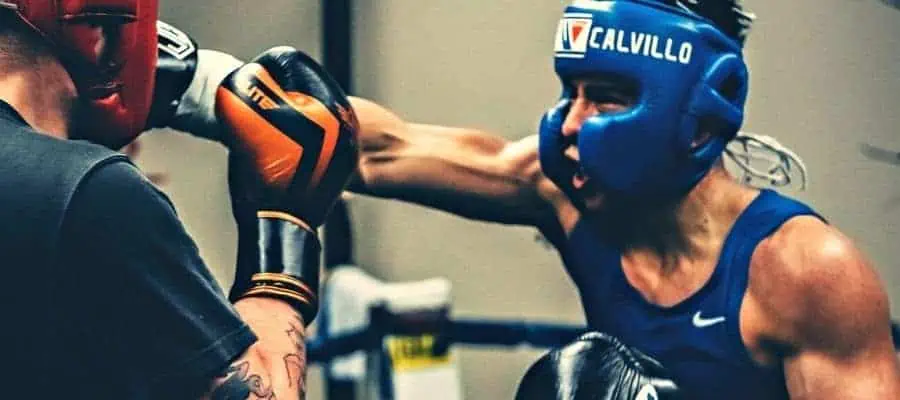
When you are sparring, it’s important to wear the proper gear. This includes gloves, hand wraps, a mouthguard, and protective cups for men. Wearing the right equipment will help to protect you from injuries. Make sure that your hands are wrapped properly to avoid hurting your wrists.
Warm-Up Properly

Before each sparring session, you should warm up properly. This will help to prevent injuries and increase your flexibility. A good warm-up routine should include stretching and light cardio exercises. A few shadow boxing rounds can also help to get your blood flowing.
Make sure to “warm-up” your ears and nose by rolling them a little bit with your hand. This will make them less prone to injuries. When you first start sparring, it’s important to go slowly. This will help you get a feel for the other person’s style and avoid getting hit too hard. Once you get more comfortable, you can pick up the pace.
Use Offensive And Defensive Moves

When you are boxing, it’s important to use both offensive and defensive moves. You should throw punches with power but also be able to defend yourself from your opponent’s shots. Mixing up your attacks will keep your opponent guessing and off-balance.
Be sure to dodge and weave to avoid getting hit. This will take some practice, but it’s important to learn how to do it correctly. You should also try to counterpunch when your opponent leaves themselves open.
Vary The Speed Of Your Punches
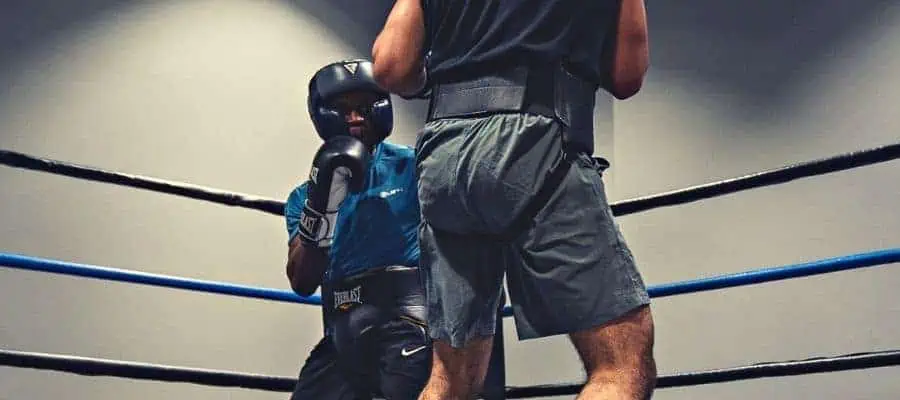
Another way to mix things up is to vary the speed of your punches. Throwing fast jabs can create openings for you to land bigger shots. Or you can use feints to fake out your opponent and then throw a hard punch.
You can, for example, pretend to go for a slower body shot and then throw a faster uppercut to the head instead.
Film Yourself Sparring

One of the best ways to improve your boxing is to film yourself sparring. This will allow you to see what you are doing well and what you need to work on. You can also share your footage with your coach for feedback.
After you have filmed yourself sparring, it’s important to review the footage. Watch it multiple times and take note of any mistakes that you made. Then, come up with a plan to correct those mistakes in future training sessions.
Take Breaks As Needed
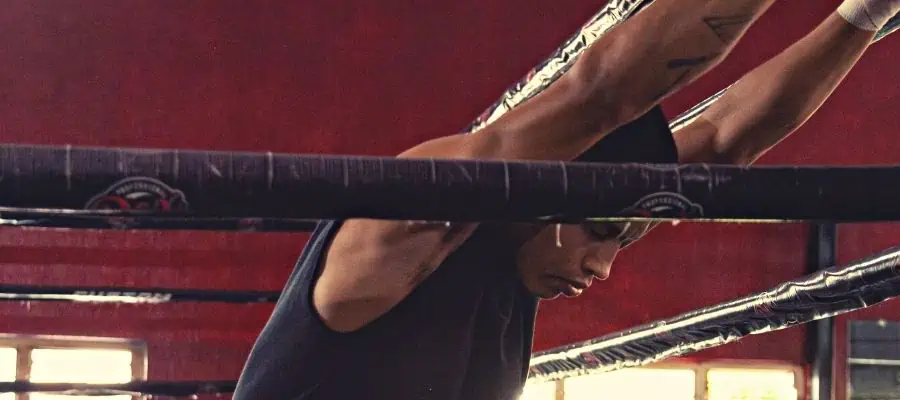
If you are feeling tired or overwhelmed, take a break. It’s important to listen to your body and rest when you need it. Taking breaks will help you avoid getting burned out and maintain your focus during training sessions.
Even if you don’t feel well enough after the first few rounds, it is okay to rest. It is better to stop and recover than go into sparring round and get knocked out because you were too tired. Remember, not getting hurt unnecessarily when training is crucial in your long-term career.
Use Your Jabs Often
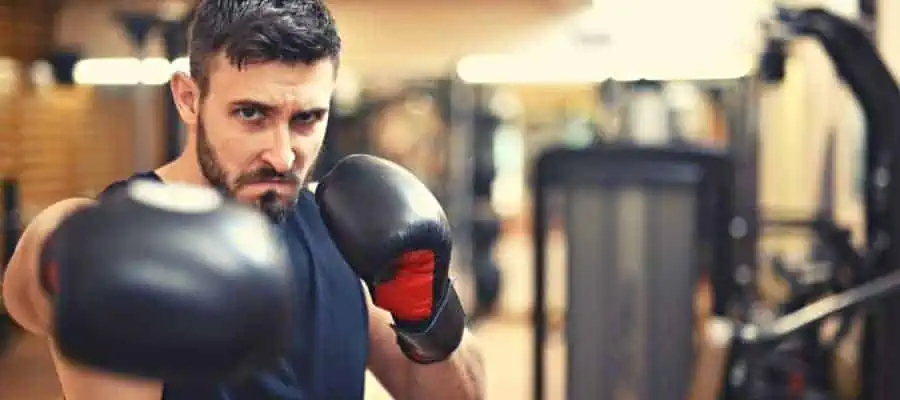
The jab is one of the most important punches in boxing, and it should be used often during sparring. It’s a great way to gauge your distance, set up combinations, and keep your opponent at bay. You should always be looking to throw a jab when you are sparring. It’s a great way to measure the distance between you and your opponent, set up combinations, and keep them at bay.
The jab is crucial in boxing as it can score the most points. It is such a simple yet effective tool that many fighters have made entire careers of just using their jab ideally. Master the jab, and you will master everything else.
Move Your Head
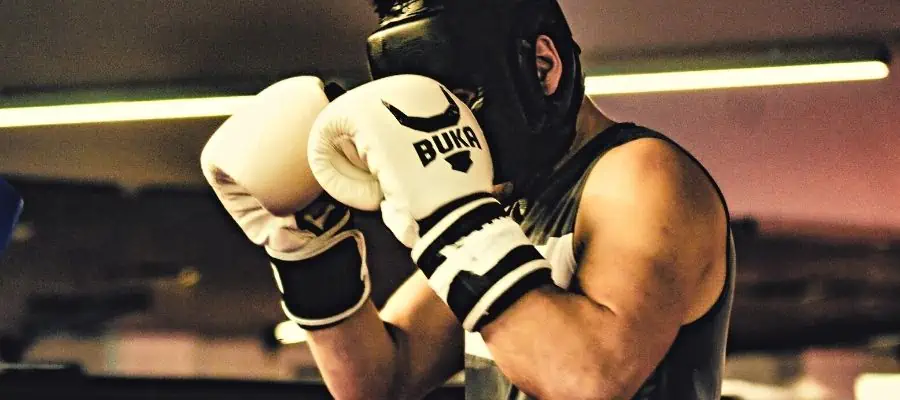
When you are sparring, it’s important to move your head to avoid getting hit. This will take some practice, but it’s an essential skill to learn. It would help if you also tried to keep your chin down to protect it from shots.
This is one of the most crucial movements each boxer needs to learn. A well-placed shot will put anyone away no matter how tough you are. By moving your head, you will become less predictable. You will also take less damage. And by dodging more punches, you will tire out your opponent quickly and discourage him.
A sparring session is the best time to practice your head movement in a semi-realistic scenario. This way, you will be able to dodge punches when you step into a real ring. As you become more comfortable with moving your head, you can start to add in feints and head movement to create openings for punches. This will take some time and practice to master.
Stay Loose
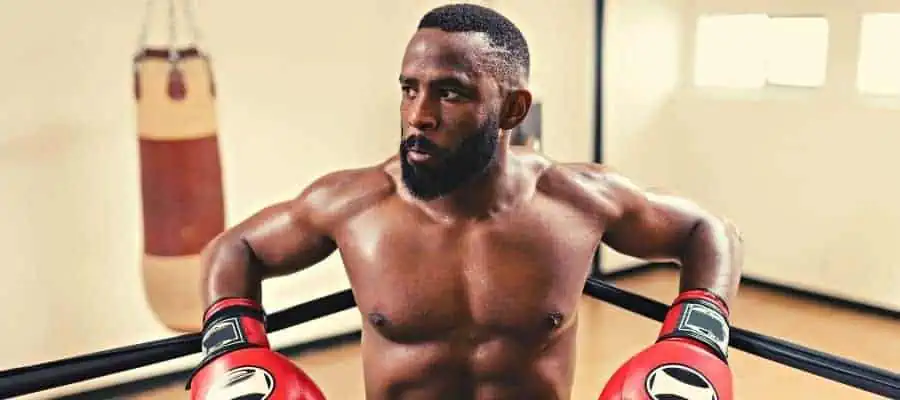
When you are sparring, it’s important to stay loose and relaxed. This will help you be quicker on your feet and throw faster punches. If you get tense, you will tire out quickly and put yourself at risk of getting hurt. When you get tense, you use more oxygen, which is crucial in boxing. By using up more oxygen, your muscle will get tired and tense sooner, which is not a good thing.
To stay loose, you should try to loosen up your muscles before sparring. You can also do light shadowboxing or jump rope to get your blood flowing. Once you start sparring, keep your hands up and stay on your toes. Make sure to breathe correctly and don’t tense your jaw when throwing a punch.
Protect Yourself At All Times

When you are sparring, it’s important to protect yourself at all times. This means using proper technique and being aware of your surroundings. You should always keep your hands up and be ready to defend yourself. Also, keep in mind that you aren’t the only person sparring. You will often have to be careful not to bump into one of your training partners.
If you are feeling fatigued, take a break. It’s better to rest than to get hurt. Also, be sure to warm up properly before each sparring session. This will help to prevent injuries.
And don’t act like a tough guy and power through injuries because that is a sure-fire way to make those injuries long-lasting. It is essential to stop and address your injury if you get hurt. Remember, powering through injuries is for when you step into the ring for a real fight.
Let Your Hands Go
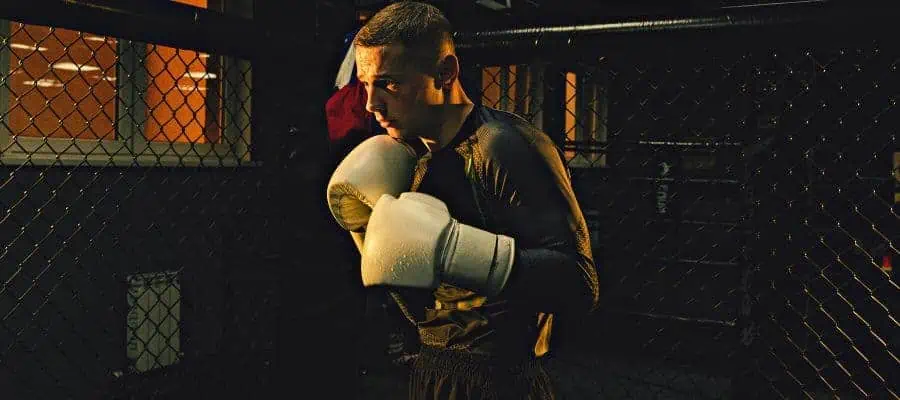
When you are sparring, it’s important to let your hands go and not worry about getting hit. This will help you to loosen up and throw punches with more power. Remember that you are wearing gloves and headgear, so you won’t get hurt if you get hit.
Also, don’t be afraid to experiment with different punches and combinations. This is the best way to learn what works and what doesn’t. A sparring session is the best time to try out new combinations that you have learned previously.
But remember, basics are what make great fighters. By doing the basics over and over again, they will become second nature when you eventually do go and fight in the ring. The more you spar, the more comfortable you will become with letting your hands go.
Breathe Properly

When you are sparring, it’s important to breathe correctly. This will help you to stay calm and relaxed. If you get tense, you will tire out quickly and put yourself at risk of getting hurt.
To breathe correctly, you should exhale when you throw a punch. This will help to relax your muscles and increase your power. Also, inhale deeply through your nose and exhale through your mouth. It might be hard at first, but you will learn it through practice.
Watch Your Opponent’s Hands

When you are sparring, it’s essential to watch your opponent’s hands. This will help you to anticipate their punches and counter them. Also, keep an eye on their feet so that you can stay out of range. You can do both by looking at your opponent’s chest area. That way, you can see both their feet and their hands.
If you are having trouble reading your opponent’s punches, ask your coach for help, he might give you some insight into how to do it better. They will be able to provide you with tips on how to improve your defense.
Use Footwork To Create Angles
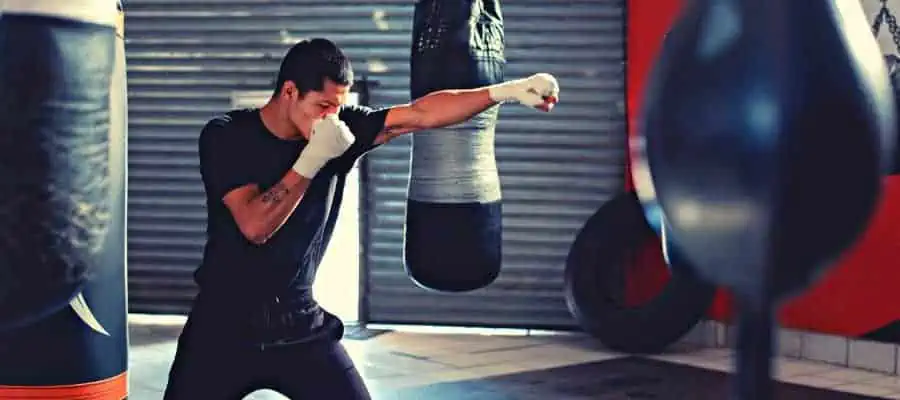
When you are sparring, it’s important to use footwork to create angles. This will help you throw punches from different angles and land more shots. Remember that you want to be moving your feet constantly, even when you are not throwing punches.
One way to create angles is to circle your opponent. This will allow you to stay out of their range and throw punches from different angles. Another way to create angles is to step in and out of your opponent’s range. This will help you to time your shots and avoid getting hit. Ducking under your opponents’ punches and coming back up behind their arms is a great way to create a perfect angle to counterpunch.
Don’t Go Sparring With Bad Intentions

When you are sparring, it’s important not to escalate the sparring session. This can lead to injuries, and it’s unnecessary to spar with all your power. It would help if you were sparring at about 70% of your full power. A great tip me and my friends have followed is to use about 70% of your power when throwing punches to the body and about 40% of your power when throwing punches to the head.
If you have trouble holding back, ask your coach to help you. They will be able to give you tips on how to control your punches. Also, try to focus on technique rather than power. This will help you to relax and throw punches with more control.
Have Fun

Sparring can be a lot of fun if you approach it the right way. Remember that it’s just a game, and there is no need to get too serious. You are not fighting serious opponents but rather your training partners, who are probably your friends. There is no reason to take it too seriously and hurt each other.
Of course, there are times when you will have to spar a bit harder, but just remember, sparring is just another sort of training. Just relax and enjoy yourself.
Have A Game Plan
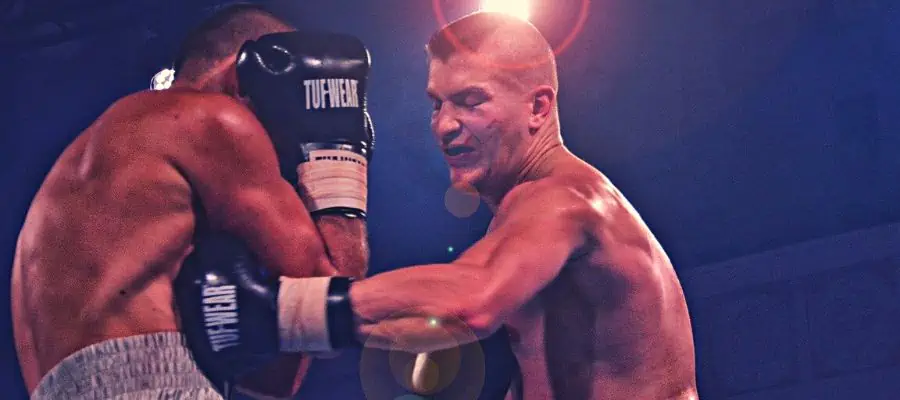
When you are sparring, it’s important to have a game plan. This means knowing what you want to accomplish and how you will do it. For example, if you are trying to work on your footwork, you should have a specific plan for how you will do it.
Your game plan can also be used to help you warm up before sparring. This way, you will be more focused and ready to go when the bell rings.
Listen To Your Corner
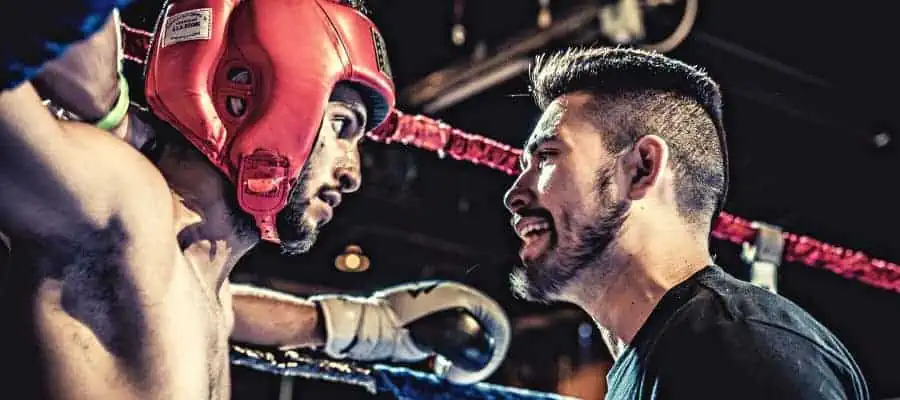
During a boxing match or even sparring, you will have a corner man who will give you advice. It’s important to listen to what they say and take it to heart. They can see things you can’t, and they want you to win.
If you don’t have a corner man, you can still ask for advice from your coach or training partners. They can help you improve your technique and develop a game plan on the spot.
Be Prepared For Anything

When you are sparring, you should be prepared for anything. This means being ready to change your game plan on the fly. If your opponent is giving you trouble, don’t be afraid to adjust your strategy.
For example, if your opponent is good at counterpunching, you might want to throw more feints. Or, if they are good at avoiding your punches, you might need to be more patient and wait for openings.
Stay Calm

It’s important to stay calm when you are sparring. This way, you can think clearly and make good decisions. If you get too emotional, it will cloud your judgment, and you might make mistakes.
Of course, it’s normal to feel some adrenaline when you are fighting. But it’s important to control it and not let it take over. Take a few deep breaths and try to relax as much as possible.
Respect Your Opponent
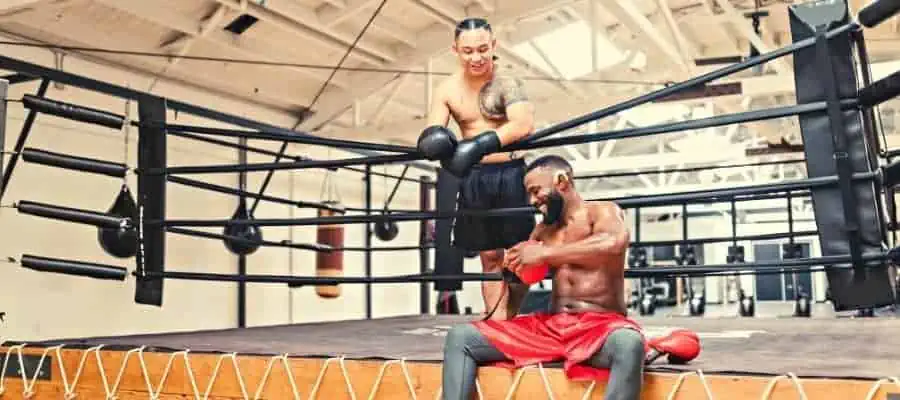
Even though you are mostly trying to beat each other up, it’s essential to respect your opponent (training partner). This doesn’t mean that you have to be friends with them. But you should respect their skills and abilities.
Respecting your opponent will also make you more likely to follow the rules. If you don’t respect them, you might be tempted to break the rules or use dirty tactics.
Learn To Not Look Your Opponent In The Eyes

It is essential not to look in the enemy’s eyes (or your sparring partners) and look into his chin/chest area. It will help you increase the field of view and recognize his upcoming punch. By doing this, you will be able to react accordingly.
Also, it saves you from your partner’s feints. Sometimes your opponents will try and feint with their eyes. For example, he looks at your body, but gives you an overhand right at the last moment.
Don’t Spar With The Same Partner All The Time

Try to spar with as many different partners as possible so that you can learn to adapt to different styles and levels of experience. If you constantly spar with the same partner, you’ll quickly develop bad habits. You will also become accustomed to the same training partner’s strengths and weaknesses, which will limit your ability to improve.
You need to mix it up and spar with different partners of different sizes, shapes, and skill levels. This will help keep you on your toes and improve your overall game.
Always Spar With Proper Technique

Sparring is a great way to practice your technique, but only if you’re doing it correctly. Make sure you’re using proper form and not just flailing around – this will only ingrain bad habits. If you’re sure what good technique looks like, ask a coach or a more experienced sparring partner for help.
Vary Your Distance
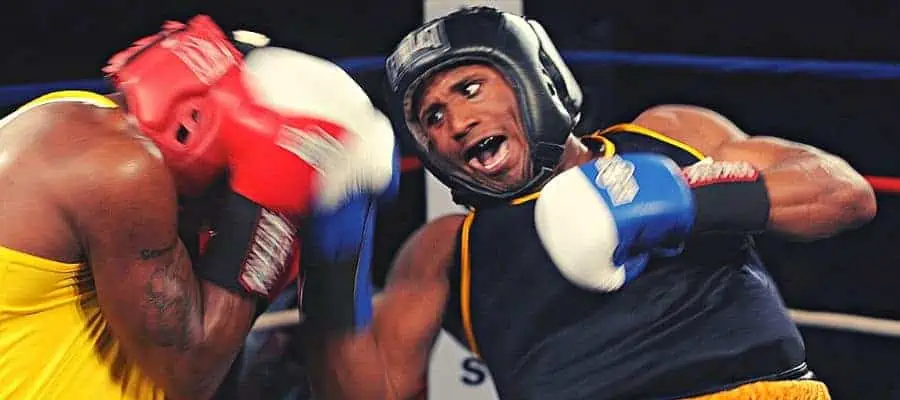
Sometimes people are afraid to break the distance and work only on the longer distance because it is safer. But they forget to train fighting in the pocket, where two boxers fight at a short distance. It is important to improve your hooks to the body and other combinations. Also, breaking distance is a skill. You can learn to fight in the pocket and at a longer distance.
Train With A Purpose

When you’re sparring, make sure you’re doing it with a purpose. Don’t just go through the motions – put some real effort into it and try to learn something new each time. This way, you’ll get the most out of your training and improve faster.
Conclusion
Here are many tips and tricks that can help you to improve your boxing sparring. If you want to become a better boxer, it’s important to put in the time and effort. Practice regularly, eat healthy foods, and get plenty of sleep. And don’t forget to warm up properly before each session. With some hard work and dedication, you can reach your goals.
By following these tips, you will be sure to improve your skills in no time! Stay consistent with your training and listen to your body – before you know it, you will be a pro at boxing sparring!
Recent Posts
What is Manachai's Fighting Style? Unveiling Muay Thai Mastery
Manachai, a celebrated figure in the Muay Thai world, has captivated audiences with his exemplary martial prowess. Hailing from the heartlands of Thailand, his name is synonymous with the art of...
What Was Chamuekpet Hapalang's Fighting Style? Unveiling Techniques
Chamuekpet Hapalang was a renowned figure in the world of Muay Thai (record 200-48-2), embodying a fusion of Muay Bouk and Muay Khao styles. Originating from Thailand, the art of Muay Thai is known...
